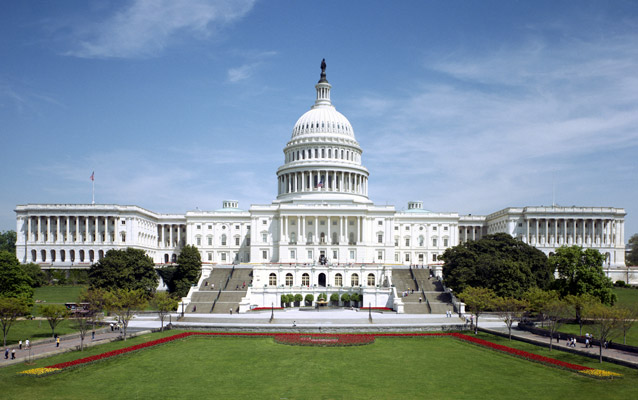The 2023 National Defense Authorization bill passed the House Dec. 8 and the Senate is poised to pass it in the next few weeks, paving the way for a 4.6 percent pay raise, a housing allowance increase, the elimination of the COVID-19 vaccine mandate, and more.
But the authorization bill only directs policy; it takes a Defense Appropriations Act to fund those programs. Lawmakers are still negotiating an omnibus spending bill that would give the federal government a budget. As long as the government continues to operate under a continuing resolution, funding levels are frozen at the previous year’s level and raises to basic pay, BAH, and other accounts are impacted, as Air Force Secretary Frank Kendall outlined in a recent letter to Congress.
What is clear from the 2023 NDAA is that lawmakers want to put more money in troops’ pockets to combat soaring inflation.
Pay and Allowances
At 4.6 percent, the 2023 pay raise is the largest in 20 years and in line with the President’s budget request. On top of that, the NDAA authorizes the Defense Department to increase Basic Allowance for Housing payments by an extra 2 percent. The 2023 rates for BAH have yet to be released.
The bill also would expand eligibility for the new Basic Needs Allowance, which will supplement the pay of junior service members with large families. The initial BNA legislation authorized the payment to service members whose gross family income was up to 130 percent of the federal poverty rate based on the family’s size; under the 2023 NDAA, eligibility would expand to those whose gross family income is up to 150 percent of the federal poverty guidelines. To receive the supplement, members must apply.
The NDAA also renews the Pentagon’s authority to temporarily adjust BAH rates in response to soaring prices. DOD used this authority in both 2021 and 2022 to adjust rates in places where housing costs exceeded established BAH rates by 20 percent or more, but that authority expired Sept. 30, 2022; under the 2023 NDAA, it is extended through fiscal 2024.
The NDAA also includes a proviso that would require the Pentagon to produce a report on the “efficiency and accuracy of the current system used to calculate BAH.” That system entails surveying roughly 400 rental markets across the country, determining the median price of rent and utilities for six different housing options.
Lawmakers also directed the Pentagon to consider alternatives to the way BAH is now calculated, perhaps including data from local school districts or recalculating BAH more frequently than once a year, and potentially being more transparent in how the BAH formulas are calculated or contracting those calculations out to a civilian vendor.
Chief Master Sergeant of the Air Force JoAnne S. Bass has pushed for similar ideas as part of her call for a “holistic” review of military compensation.
In addition to BAH, the NDAA also calls for Pentagon leaders to conduct a review of the allowances given to troops for dislocation and relocation when they temporarily or permanently change assignments.
The bill also would require an external study on “the value of basic pay for members of the Armed Forces,” including an assessment of the underlying model used to determine basic pay and whether it needs to be changed. The provision calls for Pentagon officials to provide three briefings to Congressional committees, first in April 2023, then one year after the NDAA is passed, and again a year later.
COVID-19 Vaccine
The NDAA, if passed, will direct the Pentagon to rollback its COVID-19 vaccine requirement, which has been in place since Secretary Lloyd J. Austin III ordered the measure in August 2021. Thousands of service members were discharged or retired because they declined to be vaccinated.
While President Joe Biden and Austin have argued in favor of the vaccine mandate, Congressional Republicans had pressed the issue and Democrats in Congress bowed to the pressure. HASC Chairman Rep. Adam Smith (D-Wash.) said the situation had changed with the general easing of COVID-19 protocols across the country.
The NDAA also extends a requirement that any service member kicked out for refusing the vaccine receive no less than a general discharge, and requires the Secretary of Defense to submit data quarterly to Congress on religious and medical exemptions to its vaccine requirement until the requirement is dropped.
Recruiting and Retention
The NDAA responds to military recruiting woes with several directives. Lawmakers want a broad review of recruiting data from the services, an evaluation by the Comptroller General on each service’s marketing and recruiting practices, and a report on how DOD advertises itself to racial and ethnic minorities. It also re-authorizes the service secretaries to develop up to three new incentives for new recruits.
In addition to attracting new service members, the NDAA contains sections aimed at improving retention. Specifically, it calls for each department to conduct reviews and share best practices for improving retention for female service members and for special operations forces, a career field that is in constant need of more recruits and can ill afford to lose too many people.
The Air Force in particular could be affected by another provision included in the bill that would require a “study to identify opportunities to provide more support services to, and greater recognition of combat accomplishments” of drone pilots and crew members.
That review would cover everything from the special duty and combat pay available to UAV crew members, to mental health support, safety policies, and career advancement opportunities.
